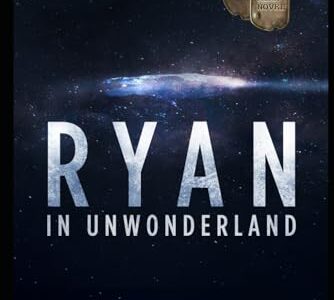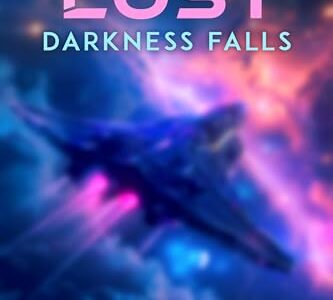Pros
- An interesting plot that may have been derived from some ideas surrounding Oumuamua
- Conclusion was satisfying and perhaps even a bit idealistic in a good way
Cons
- Story takes a bit to get off the ground especially as the astronauts prepare
- Pacing seems a little lopsided from beginning of the book and the end
- Not much is revealed about their discovery
The Object Review
The Object by Joshua T. Calvert spins a fantastic tale from the 2017 discovery of Oumuamua, an unusual cylindrical extrasolar object that passed through the solar system and whose presence inspired some UFO conspiracies involving a defunct spaceship.
Real or not, the object in the story exhibits some similarly strange maneuvers that makes Dr. Melody Adams, an Air Force pilot and physicist, certain this is more than a mere comet while the rest of the scientific community, including her fellow NASA scientists, ridicule her statements.
Suffice it to say that if the scientific community was correct, there’d be no story. This hard science fiction story seems plausible enough. After all, NASA has successfully intercepted and retrieved an asteroid sample. The plausibility of sending a manned mission to another cosmic visitor isn’t too far off.
While the more realistic aspects of this story make the plot more believable, it also leads to a bit of a slow pacing as the writer needs to address issues like training, selection, and the politics of the situation—after all, if such an object was verified in our solar system, it would set off a space race among the competing space agencies and countries that would dwarf the cold war.
Geopolitics, the need for partnerships, the need for funding, and astronaut selection and training are all aspects of the story that contribute to the realism. By going through this admittedly not-so-exciting process, the story establishes a sense of realism that persists through the later half of the book where more fictional elements stretch the imagination.
Some aspects of the story that perhaps drift into the realm of fiction is the lucid dreaming aspect—while the writer describes this as a possible medium, it seems a bit of a stretch and into the realm of the paranormal or spiritual rather than hard science. In fact, there’s almost a kind of hesitancy with exploring lucid dreaming further, and even the protagonist, Dr. Adams, avoids going into too much detail about the topic even though she promises to explain the phenomenon to her colleagues.
The most exciting section of the book takes place after Dr. Adams and her crew finally make it to their target after a fairly uneventful journey that sees them losing one of their crew to a common danger in space travel: micrometeorites. It’s here at their destination the the story really picks up and perhaps ends too soon with some tantalizing answers to questions humans have perhaps harbored since antiquity: are we alone?
This singular question has driven many readers and writers to science fiction and subjects like astrophysics and other related sciences. The desire to even glimpse the answer to this question is what propels Dr. Adams’ persistence and the reader’s investment into the story. While the answers may appear a bit lacking in detail, they at least provide some closure.
As for the consequences of the journey? In what ways would the the answer to the question change the world? The epilogue takes a more optimistic perspective.
The Object by Joshua T. Calvert is a fairly mundane, even boring, title for what is otherwise an exciting and not implausible story regarding an extrasolar object’s encounter with humanity and the effects such an object may have on humanity.
Read reviews of other thrilling science fiction stories below.



